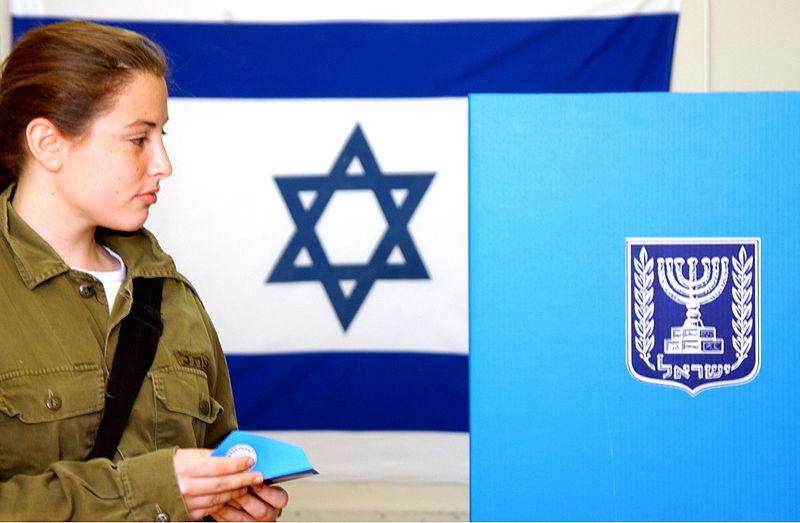J Street and the Jewish Agency recently hosted discussions about the upcoming Israeli elections, in which UCLA students were invited to learn about and debate over the issues that caused the calling of early elections, and discuss how those issues would be resolved following the election. These debates turned into cozy “coffee dates,” however, as attendance was sparse. This meager turnout was reflective of the lack of interest that the majority of young American Jews display in Israeli politics. Why are these Jewish college students — future leaders of the Jewish community — so blasé about the political happenings of their ancestral homeland?
Apathy towards Israeli politics could be part of an overall disinterest that college students have towards politics. According to the Tufts University Center for Information and Research on Civic Learning and Engagement, 13% of votes cast in the 2014 midterm elections were from voters ages 18-29, compared to the nearly 40% overall turnout. Despite this, one would expect the deep connection and affection that the vast majority of world Jewry has for Israel to trickle down to the youth and galvanize Jewish millennials into displaying more passion for Israel than their non-Jewish counterparts. What can be done to catalyze this unenthusiastic reaction?
Another, more obvious, cause for this sort of apathy is a simple lack of relevant information. Sadly, the vast majority of Jewish students on campus are unaware of the problems plaguing Israeli society today, with both social movements and security issues being ignored. With students’ extremely busy personal studies and heavy extracurricular activities, many simply feel that they do not have the time to concern themselves with the affairs of a tiny country across the ocean.
Luckily, this can be easily remedied. UCLA offers a wide range of Jewish Studies and Israel Studies classes that can be taken as electives, which most students need. These courses can give the opportunity to students who are interested in a variety of Israeli- and Jewish-related subjects to learn about their heritage and birthright, while also gaining credit for an elective. As an added bonus, since many Jewish students already have a basic background in these areas, these courses will probably fall in the much venerated “easy A” category for them.
Another cause for the lack of youth interest in Israeli policies is the apathy towards and alienation they feel from politicians and politics in general. Most college students feel that they have little in common with the elderly and uptight image they have of politicians (whether in America or Israel), and politicians see young people as politically indifferent free-loaders who enjoy the benefits of citizenship without participating in the democratic process. Additionally, since American Jewish youths cannot actually vote in the Israeli elections (since the vast majority of them are not Israeli citizens), they may feel further distanced from the Israeli political process.
There are, however, ways that one can become involved in policy-making decisions without being an Israeli citizen. For instance, one can participate in the World Zionist Congress elections, which began earlier in January and will run through April 30. The Congress is a 500-person representative body for Jewish people that controls several key institutions, such as Keren Kayemeth LeIsrael, the Jewish National Fund, the Jewish Agency for Israel, and the World Zionist Organization. The Congress helps create these organizations’ policies, appoints some of their leaders and decides how their money is spent. Of the 500 representatives, 190 come from Israel, 145 from the United States, and 165 from the rest of the world combined. Representatives are chosen in various ways, and any Jew over the age of 18 who acknowledges certain Zionist principles can vote. Voters can choose from a variety of parties with a wide range of political platforms, based on different religious denominations and political knowledge.
One of the WZC candidates, Mati Cohen, a Los Angeles native and Santa Monica College student, is also the founder of Young Jewish Zionists, which trains and empowers current and future young Zionist leaders to be open-minded and forward-thinking in regards to Israel, its future, and Zionist philosophy. As a candidate for the Zionist Spring party, which is mainly focused on institutional reform, Cohen knows all about the importance of youth involvement in Jewish and Israeli affairs.
“It’s not just about Israeli politics,” claims Cohen, “it’s about strengthening Jewish continuity and identity as it relates to Israel. Jewish teens should become active participants in the current struggles of their people which include Jewish identity in the diaspora, and involvement with Israel’s future as it pertains to Jewish future as a whole.”
It is critical that young Jews of America and the remainder of the Diaspora become more involved in the welfare of the world’s only Jewish state. As the future leaders of world Jewry and pillars of the State of Israel, their current apathetic mindset towards their homeland can have disastrous consequences for Israel.

